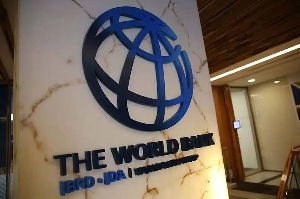Business Features of Friday, 29 March 2024
Source: World Bank and Ministry of Trade and Industry
Transforming governance in Ghana: A new regulatory service model for Africa
Ghana is keeping pace with the rapid global transition to digital technologies, including in the realm of e-government where the country is regarded as a leader in Africa.
Ghana received high scores on the 2022 United Nations E-Participation Index, which assesses the extent to which governments use online platforms and technologies to involve citizens in decision-making processes and policy development.
The 2022 World Bank GovTech Maturity Index also finds Ghana outperforming regional peers. Digital service delivery is strengthening governance and providing efficiencies for the public and private sectors.
Ghana’s Business Regulatory Reform unit (BRR), established in 2017 within the Ministry of Trade and Industry, provides a strong example. Under the Ghana Economic Transformation Project (GETP) and with technical assistance from the ACP-Business Friendly Program funded by the EU, the World Bank is supporting the BRR in boosting increased citizen engagement through e-portals. Technology tools are ensuring that the private sector is aware of regulations, allowing the BRR to better engage companies in the regulatory process and identify regulatory bottlenecks.
Three examples stand out:
Business Regulations E-Registry:
After its inception, the BRR quickly adopted ICT tools to serve its constituents. One of the most significant developments was the launch of an e-registry in 2020, which allows users to access and download regulations relevant to the business environment. The e-registry includes user-friendly features like keyword searchability and filters to locate relevant regulations. The e-registry not only streamlines the process for companies to establish and operate legally but also strengthens their adherence to legal regulations.
Consultation Platform on Draft Laws and Regulatory Proposals:
BRR's commitment to promoting regulatory transparency through technology-enabled services extends to participatory governance. The Public Consultation Portal enables civil society to access draft laws while BRR officials review feedback, including comments and poll results.
For example, the MSME (Micro, Small and Medium Enterprises) Classification Regulation (2021) garnered over 1,000 views and received valuable suggestions. A notable one was to use employment numbers to categorize firms (e.g., micro, small, medium, and large). This criteria was incorporated in the final regulation adopted by Parliament.
An online ‘suggestion box’:
The BRR seeks to engage citizens and firms through the ‘Have Your Say’ platform that allows companies to voice complaints on regulatory bottlenecks and suggest improvements. Users can submit their recommendations for review by BRR personnel. This feature, inspired by the Singapore’s Pro-Enterprise Panel suggestion window, aims to identify and address procedural bottlenecks and implementation gaps on regulatory reform implementation. The feedback platform, still in the initial stages of implementation, promises to provide an efficient means of reaching officials to improve business conditions.
Looking ahead: Is Ghana a new regulatory service model for Africa?
The BRR is committed to sharing knowledge with peers across the continent. In March 2023, with support provided under the ACP Business Friendly Program funding by the European Union, BRR representatives introduced their digital solutions and lessons learned to a delegation from Madagascar. Following this exchange, the country is now looking to implement similar tools to better engage its private sector in the regulatory reform process.
While e-service tools are starting to make their mark in Ghana, the BRR continuously seeks to enhance its digital services. Improvements include building awareness about these online solutions and strengthening constituents’ trust in these tools. As countries on the continent strive for sustainable growth, enhancing service delivery efficiency and involving the private sector and citizens in governance are crucial steps. Developing targeted technology solutions will help African nations leverage governance improvements and operational efficiencies, and thereby better support their populations and foster development.











